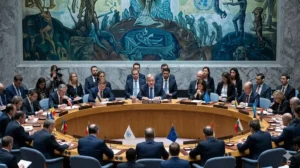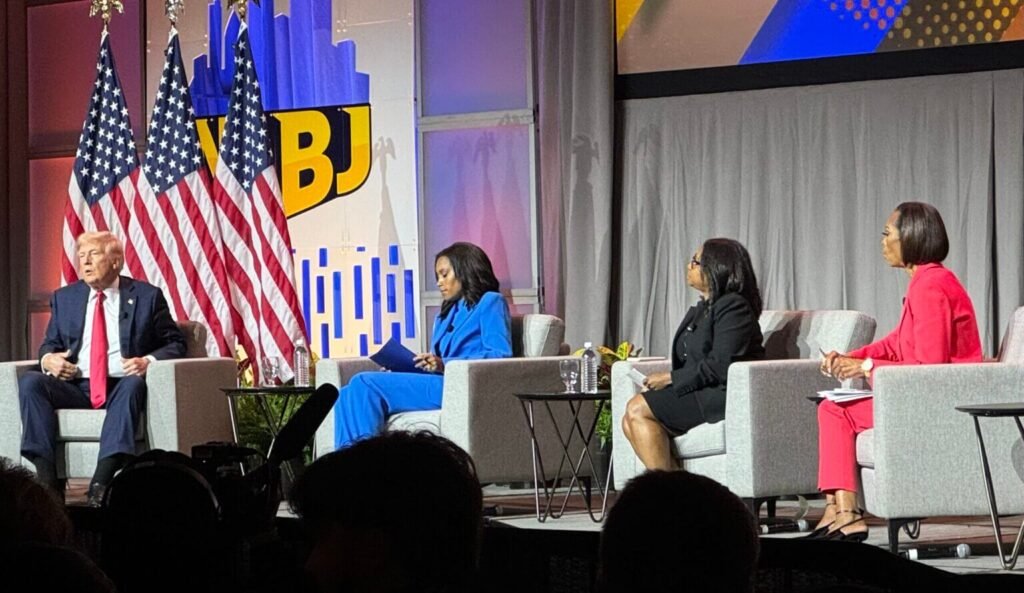At a recent convention of Black journalists in Chicago, Donald Trump accused Kamala Harris of changing her racial identity for political reasons. Trump stated during the panel at the National Association of Black Journalists Convention that Harris, Black and South Asian, had earlier highlighted her Indian background before abruptly declaring as Black.
“I didn’t know she was Black until a number of years ago when she happened to turn Black,” Trump said. “So, I don’t know, is she Indian or is she Black?” He added that Harris had always been associated with her Indian background before this alleged shift.
Trump’s statements set up a heated conversation with panel moderator Rachel Scott, who questioned him over his prior attacks of Black district attorneys and reporters. Trump brushed off Scott’s inquiries as improper and nasty.
Responding to Trump’s charges in Houston at a gathering of Sigma Gamma Rho, Harris said his remarks were divisive and insulting. She highlighted that instead of antagonism, the American people want a leader that advances unity and truth.
Karine Jean-Pierre, White House Press Secretary, also attacked Trump’s comments, labeling them nasty and demeaning. She highlighted the need of honoring Harris’s stance and identity.
Trump’s charges against Kamala Harris mirror his larger history of questioning Black political leaders’ qualifications, a strategy he has already applied against President Obama. This strategy sometimes causes continuous arguments and discussion.
For both contenders, getting the Black vote is absolutely vital. While Democrats usually depend on great support from Black voters, Trump gained from reduced turnout among Black and Latino voters in the 2016 election.








